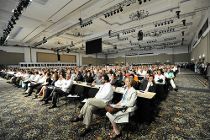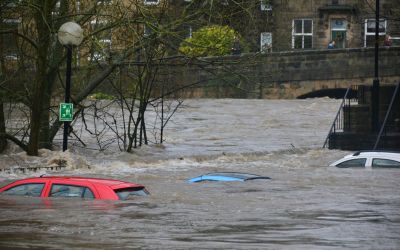Day nine at COP16 and developing nations voice opinions
As the pressure builds at the 16th Conference of Parties (COP16), more countries pledge their loyalty to combating climate change.

As the pressure builds at the 16th Conference of Parties (COP16), more countries pledge their loyalty to combating climate change.
Deputy Prime Minister of Qatar, Abdullah bin Hamad al-Attiyah, spoke on Wednesday (December 8) reaffirming Qatar's commitment to promote clean energy industries. He said: "Qatar is a small country in terms of population, but it contributes more than any other country in the world providing clean energy for the consuming countries. Therefore it plays a big part in reducing greenhouse gas emissions in these countries."
He added that the implementation of this strategy requires developed countries to fulfil their promise of financial and technical assistance aimed at helping developing countries combat climate change.
Kenya's Prime Minister, Raila Odinga, also spoke on Wednesday, encouraging delegates for compromise, in order to achieve the right deal. He said that while most nations were unhappy with the undemocratic negotiation processes and the disappointing outcomes in Copenhagen, they accepted the Copenhagen Accord. The voluntary emission reduction target set the pledge of USD$30 billion fast track financing, and the commitments of USD$100 billion annually by 2020.
He repeated what other groups have emphasised - that progress is too slow and much of what has been promised has not been delivered.
Odinga said that Kenya is keen to see that COP16 achieves: "a clear reaffirmation of the USD$30 billion fast track financing to be made available during 2010-2-12."
On Wednesday the Clean Development Mechanism Executive Board (CDM EB) reported on its performance in 2010. Various countries welcomed the improvements they had made, but called for further reforms in the program, which allows developed countries to offset their emissions through projects in developing countries under the Kyoto Protocol. These reforms include enhanced communication, more transparency, shorter wait times for registration and issuance, and better baseline and monitoring methodologies.
ICT was also an important topic on Wednesday, where world leaders were urged to focus on ICT solutions to reduce carbon emissions. A CEO and ministerial panel will discuss how improvements in ICT can play a huge role in combating climate change.
Hans Vestberg, President and CEO of Swedish company Ericsson said: "Introducing ICT solutions in all sectors of society allows us to shift the climate change discussion." For more information on ICT solutions, click here.
The Committee For A Constructive Tomorrow (CFACT), on Wednesday, took delegates, press and attendees to a Mexican Village, La Libertad, to show them how people live without electricity.
1.4 billion people live without electricity, while three billion people cook with solid fuel. The trip was to show attendees the plight of the energy poor. Showing delegates from developed and developing nations how difficult it can be for some to access affordable energy.
CFACT President, david Rothbard, said: ""Today's visit was both sobering and inspiring. We and our guests saw the harsh realities of what life is like without basic necessities, such as electricity, which we take for granted. CFACT believes these children deserve every opportunity that our children enjoy, including affordable, abundant electricity and all the benefits that brings. We must not set energy policy in a vacuum and create obstacles to the progress of countless communities like La Libertad."
Access to affordable energy has led to a cleaner, greener environment and a rebound of natural habitats and wildlife throughout the developed world. Efficient agriculture and distribution, both of which require abundant energy, permit developed nations to devote less land to food production, while minimizing the need to forage for wood for cooking and heating.
As COP16 nears its close, it is now that a deal must be made. As delegates from developing nations urge developed nations, and the main carbon emitters, to make an agreement, it is trips like the one to La Libertad that it is anticipated will make the difference.
Author: Charity Knight | Climate Action
Image: UN Climate Talks | flickr






